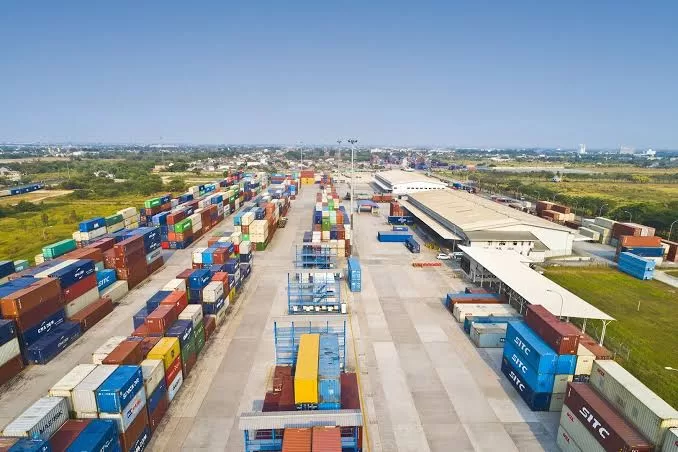DRC and Tanzania seal landmark deal to build dry ports and boost regional trade

The Democratic Republic of Congo (DRC) and Tanzania have exchanged land titles to construct dry ports within each other’s borders, paving the way for enhanced connectivity and economic integration in East and Central Africa.
The agreement was formalized during a high-level ministerial meeting held in Dar es Salaam on Wednesday, June 18, 2025.
The ceremony was co-chaired by DRC’s Deputy Prime Minister for Transport, Jean-Pierre Bemba, and Tanzania’s Minister of Transport, Professor Makame Mbarawa.
Though technical in nature, the land exchange marks a strategic shift toward economic cooperation between the two countries.
“This is not just a formality,” said Jean-Pierre Bemba.
“It is the first concrete step in opening up the eastern regions of the DRC and integrating our economies more effectively.”
The construction of dry ports — inland terminals where customs clearance and cargo handling can occur — is expected to significantly ease the movement of goods.
By establishing Tanzanian-controlled dry port zones inside Congolese territory and vice versa, both countries aim to reduce bottlenecks in the supply chain, cut transport and storage costs, and accelerate the delivery of goods to and from the hinterland.
The initiative is part of a broader strategy to revitalise the Central Corridor, a critical trade route linking Dar es Salaam’s seaport to landlocked countries like the DRC, Rwanda, Burundi, and parts of Zambia.
For eastern Congolese cities such as Goma, Bukavu, and Lubumbashi — historically hampered by isolation and poor infrastructure — the new dry ports promise faster and more affordable access to global markets.
The announcement also coincides with the end of the DRC’s term at the helm of the Central Corridor Transit Transport Facilitation Agency (TTFA).
Reflecting on the past year, Bemba highlighted Kinshasa’s commitment to regional integration and urged continued momentum: “Our goal has always been clear — to improve the rapid and cost-effective movement of people and goods within our community, thanks to modern infrastructure.”
This exchange of land titles is more than a bureaucratic gesture. It is a bold political statement by both governments — a shared determination to transform borders from obstacles into gateways of economic opportunity.
About The Author
dailymailafric
I am an avid African news observer, and an active member of Daily Mail Africa.
I’m Passionate about staying informed on diverse topics across the continent,
I actively contribute to publishing on political, economic and cultural developments in Africa.



